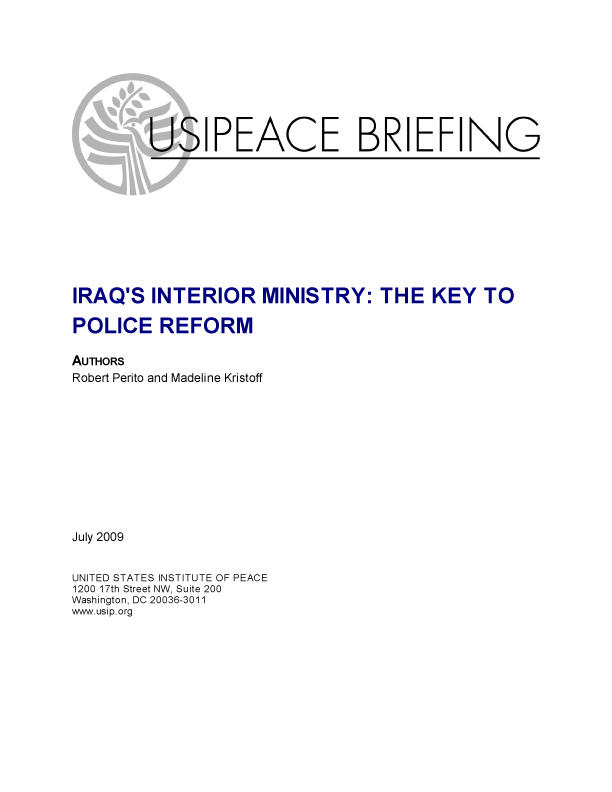Iraq's Interior Ministry
As part of a push to bolster security in Iraq, the U.S. government declared 2006 the “Year of the Police” and focused on building the institutional capacity of the Ministry of the Interior, which supervises and trains Iraq’s police force. However, even by 2007, numerous reports described Iraq’s Ministry of the Interior as crippled by corruption and sectarianism, and furthermore represented a major obstacle to developing an effective police force in the country.

Overview
As part of a push to bolster security in Iraq, the U.S. government declared 2006 the "Year of the Police" and focused on building the institutional capacity of the Ministry of the Interior, which supervises and trains Iraq's police force. However, even by 2007, numerous reports described Iraq's Ministry of the Interior as crippled by corruption and sectarianism, and furthermore represented a major obstacle to developing an effective police force in the country.
To address this critical problem, a team of American and British advisers were tasked with reforming the Ministry of the Interior. A new USIP Peace Briefing assesses the results of that team's two-year efforts, reasons behind the corruption and sectarianism at the ministry, and the prospects for building a professional police force in Iraq.
About the Authors
This USIPeace Briefing was written by Robert Perito, a senior program officer in the Center for Post-Conflict Peace and Stability Operations at the United States Institute of Peace, and Madeline Kristoff, a research assistant in the center.



